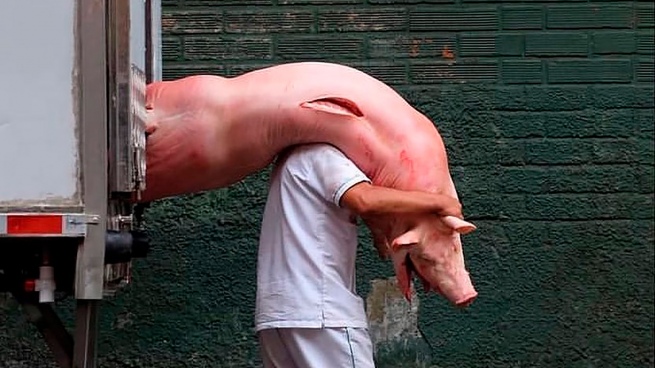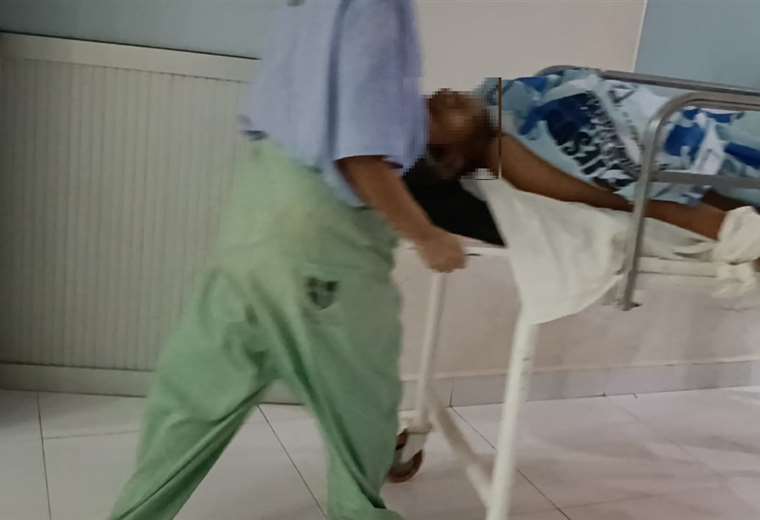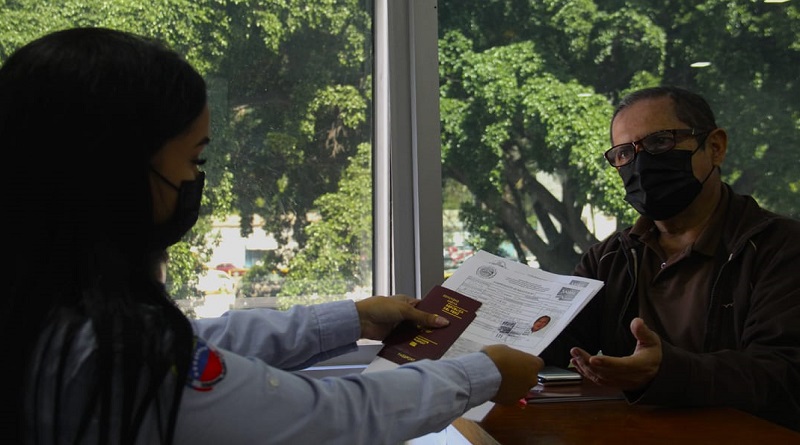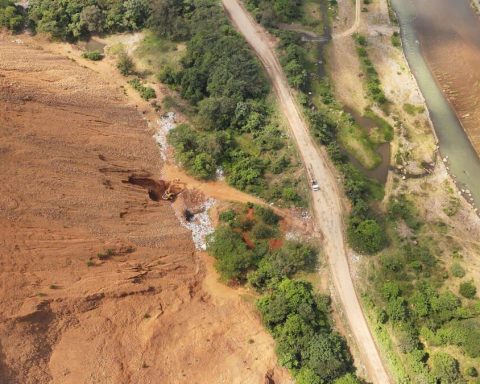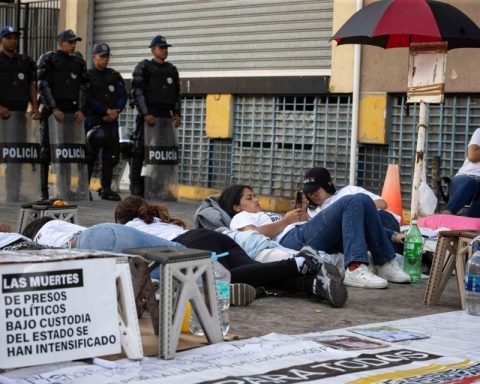Naumatic hammers that lower their hammer blow and hit the heads of the cows, which moan deformed until they faint from the pain; pigs huddled together, pre-stunned with electric prods to numb them during their journey down the slaughter line to the final cleaver; a slaughter square full of pools of putrid blood and moans of those who already have their luck cast; five hens per cage and a manager who cuts the chicks’ beaks so they don’t complain. The deep, gloomy, conical Hell that Dante envisioned in the “Divine Comedy” resembles a slaughterhouse yard.
The counterpart to this tragic scene, according to the latest survey in 2020 made by the Argentine Vegan Union, is 12% of the local population decided to adopt a vegan or vegetarian diet, 3% more than the previous year. In the same survey, the study indicated, another 12% of those interviewed self-perceived as flexitarian, a hybrid definition that applies to those who have substantially reduced meat consumption, but have not abandoned it entirely.
Under these total rates of vegans, vegetarians and flexitarians in the country, the survey indicated that 48% are men and 52% women, with a higher concentration in ages ranging between 25 and 50 years.
The eyes behind the truck
“First, they hit her with a captive bolt in the back of her neck, then they hung her by one leg and while her heart was beating they cut her throat, filled buckets with her blood, cut off her legs, her ears, opened her up in the middle and called her half res. I wonder who would have been able to eat so much pain?”, Says the text that accompanies the photo of a cow moments before entering the slaughterhouse, in a Voicot publication.
Since 1977, the international week of vegetarianism decreed by the International Vegetarian Union -IVU for its acronym in English- It is celebrated every year from October 1 to 8 with the focus on promoting a diet that does not include meat in any of its variants. -porcine, sheep, cattle, avian or fish- however, the founding axes of orthodox vegetarianism embrace a greater cause that not only seeks to avoid eating certain foods: oppose any activity that finances animal suffering for human consumption.

This international organization, which was founded in 1908 in the city of Dresden, Germany, defines vegetarianism as “a diet derived from plants, including mushrooms, algae and salt, and that excludes any animal meat, with or without the use of dairy products, eggs and/or honey” and recommends a diet “without any animal products as an excellent way to provide many benefits for animals, people and the environment”.
However, that description that questions the problem strictly from the food and it reflects only a fraction of the market to which animals are subjected to be consumed, it excludes others such as, for example, the textile, cosmetic, scientific, cleaning, entertainment and labor industries.
“Rape is a fist in the anus, they lift her stomach and inseminate her. After nine months, like us, she has a calf that cannot drink milk because it is separated for human consumption”
To learn more about how consumer plants test their products on animals and about the ailments that these sentient beings suffer in slaughterhouses and production farms, Télam spoke with Malena Blanco, Co-founder of Voicot, a militant organization that defines itself as an “art movement” and that conducts research in these places to disseminate and make visible first-hand “the torture” that the market applies to animals.
“We are the species in danger of extinguishing everything” It is the headline phrase of this organization that completes with words what Voicot materializes with his militancy every day, with Malena at the forefront of the fight.

For her veganism is “a horizon, a place to go and an ethical way of living that does not finance the exploitation of animals, for example, for food, for shows or clothing that comes from their mistreatment”and based on that, he proposes to “question” this concept because, he assures, “many products have indirect exploitation that generate consequences in animals” and one should be, then, “as vegan as possible”.
Voicot delves into research on cruelty in slaughterhouses and other areas where the physical and psychological health of animals is violated and, The suffering of these sentient beings is so great that Malena regrets that death is “their space of liberation.”
But, prior to that sentence that sadly “liberates” sentient beings from systematic torture that act on their psychic and physical fragilitythey are subjected to different practices that, if a minimum portion of these were applied to any human being, would be worthy of the most rigorous punishment.
“During times of separation in the fields, you hear the cows scream and cry and on the other side their young do the same, that baby is the only good thing that happened to her in her life of exploitation and horror, and she is separated from the two days”
“There are different forms of exploitation and different illnesses according to the species, all sentient, with a central nervous system, which is what sends pain information to the brain, just like us,” and detailed: “For laying hens, for example, the system cuts off their beaks as soon as they are born because, as they go crazy in the cages, they get desperate and peck each other, they hurt themselves and that makes them lose money.”
On the other hand, the entertainment industry does not escape this system of speciesist production and mistreatment and manages to “break the will of the animals, of their animal essence, they are forced to generate actions that go outside of their will.”
Also, those that are used for cosmetic research, for example, “they are exposed to all those consequences that could have the use of the product they are testing, they are put in a place of inferiority because they experiment on healthy animals for things that are applied to humans”. According to what he said, “they are sick on purpose for the investigations”, by following “this anthropocentric idea that we are the only animals that have a conscience and everything else is justified, based on that.”

None of all the animals used for human consumption gets the worst part, they all are, there are no better ones. In one way or another, according to Voicot’s complaint, the fate of these sentient beings leads to illness or death, all of them agonizing. Then, milking cows tortured to produce milk, for example, have to be pregnant, and for that they literally rape them.
“Rape is a fist in the anus, they lift her stomach and inseminate her. After nine months, like us, she has the calf that cannot drink the milk because it is separated for human consumption. Then they take the cow away from the calf and during times of separation in the fields you can hear the cows scream and cry and on the other side their young do the same, that baby is the only good thing that happened to her in her life of exploitation and horror, and she is separated from the two days,” Malena described.
As if this were not enough, that calf is not saved either: “Depending on its sex it will go to the fattening industry -refrigerator- or the dairy industry”lamented the activist.

“The cultural”, an evasive sedative
One of the reasons why meat is consumed despite knowing the animal suffering where it comes from, according to Malena’s experience, is because “The system makes us believe that something is normal, natural and necessary and that it is involved in who we are, questioning someone about what you eat is questioning who they choose and their decisions.”
“Taking charge of what you’re eating is taking charge of a lot of other things,” he said.
“Information about how food affects people or what happens in slaughterhouses or even what veganism is, nobody gives you, you have to go look for it, we serve the system consumers and we must be deceived, there is no Another way for us to continue financing animal exploitation is not through deception,” he concluded.
On assuming the individual role as “a link in a larger chain of suffering and oppression”, Malena reflected that “It takes a lot of courage to question everything because it means accepting that we were wrong for a long time, that we’re screwing up. You have to be brave to investigate and go the other way.”
“The fight for the rights of other animals is very big and very strong, very intrinsic to our society and this system that has animals under an atrocious production model,” said the activist.
“It is not easy to sit at a table and say I do not like animals, one’s psyche begins to participate, a very personal psyche of all this that constituted us and all this that we believe to be. We are in a capitalist, exploitative and violent system that exercises its power over the bodies of others: ours, the animals and the earth,” he lamented.

An industry that grows away from animal violence
One of the reasons that generates concern among those who decide to transition to a diet free of animal suffering lies in the prejudice that the offer in the market is not up to the demand. For this, the local certifier Veg Argentina, stated that In the country there are currently 70 companies that distribute, in total, more than 633 brands that offer around 2,352 vegan products, with a wide margin for growth.
Within the framework of a growing industry, the companies that are certified with the Veg Argentina seal, which guarantees the conformity of the origin of the raw materials, additives and adjuvants used in the elaboration of the products, to verify that they do not come from animal or derived from animals, They also registered a growth in consumption in many provinces of the country, with 78.3% of companies that allocate their vegan products to the local market.
This growth, they reported, is due to the demand of customers who demanded the guarantee that the product they consumed was vegan food in its total composition, and capitalized 47.8% of the responses, while 43.5 decided to obtain it for free. own account to generate greater credibility in your brand.
“If we all had one day of awareness about what we do to other animals, we would commit suicide”Malena Blanco, Voicot activist
